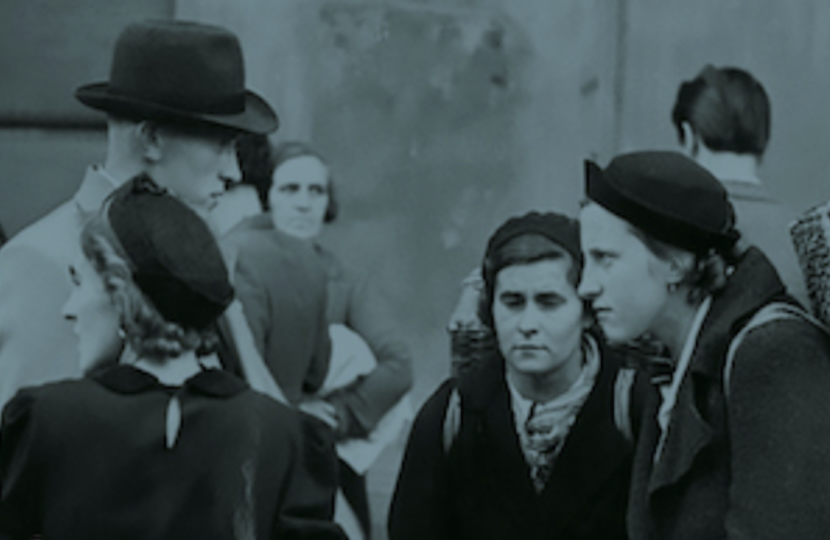
Hitler was bent on war. That may be clear now, but in 1938 it was not obvious to Britain, despite Churchill’s warnings. An important new book charts the work of a British peace mission in Czechoslovakia. Alistair Lexden’s review of it was published in Parliament’s magazine The House on 22 May.
44 Days in Prague: The Runciman Mission and the Race to Save Europe
By Ann Shukman
Published by Hurst & Company
Ann Shukman, the author of this carefully researched book with a dramatic sub-title, is the grand-daughter of Walter Runciman, an immensely wealthy shipping magnate, whose property included the beautiful Hebridean Isle of Eigg. His long, but now forgotten, career as a cabinet mimister ended abruptly when Neville Chamberlain became prime minister in May 1937. A viscountcy did not really soften the blow.
Though much aggrieved by his ill-treatment, he was persuaded to come to Chamberlain’s assistance in August the following year. His task was to broker an agreement that would resolve peacefully the massive international crisis caused by Hitler’s demand that the German majority in Czechoslovakia’s Sudetenland must be incorporated in the Reich forthwith.
Like most Englishmen, Runciman knew nothing whatsoever about this far-away country created in 1919 after the First World War. The Government which despatched him on his peace mission to Prague had no wish to protect it from territorial change. In September it became obvious that the price of peace was the transfer of Sudetan territory to Germany.
But how much territory? President Benes (known affectionately to Churchill as President Beans), the able and long-serving Czech leader, was quite prepared to countenance a significant loss, involving the departure of up to 2 million people who, as it happened, he had never wanted in his country in the first place. The 1919 Versailles Treaty was, as so many said at the time, very imperfect.
Benes did not have much time for Runciman, leaving the 67-year-old peace-broker feeling rather hurt. He and his small team of Foreign Office officials busied themselves in endless talks with prominent Sudetan Germans. They felt that they were doing rather well, particularly with Konrad Henlein, the leader.
This dissimulating charmer persuaded them that he was a moderate, wholly opposed to the dismemberment of Czechoslovakia. A compromise appeared possible, and with it success for Runciman.
He and his team were convinced of Henlein’s sincerity, as were many others , including opponents of Chamberlain, who met him in London. Support for the Sudetans surged. Runciman’s wife felt that “Hitler was a man of peace and that the Czechs were heartless oppressors of their German minority”, as she recorded in her diary, one of Shukman’s major sources, used here for the first time.
Yet all along Henlein was working closely with Hitler to stop any compromise being agreed. His successful duplicity is revealed fully in this book . Shukman is impressively candid about her grandparents’ capacity for making poor judgements.
At weekends the Runcimans left the stifling heat of Prague to be entertained by grand aristocratic families with complicated names in the vast palaces and country houses of rural Bohemia,. Lady Runciman noted the details in her diary. Her grand-daughter uses them to great effect, recalling the final phase of a way of life that had survived with little change for centuries. A few years later it was all gone, destroyed by war and subsequent Communist rule.
On 13 September 1938 Runciman gave up, convinced that his peace mission had failed. He returned to England a broken man. He gave his support to Chamberlain’s agreement with Hitler at Munich, only to discover too late that it surrendered more territory to Germany than he thought right.
Ann Shukman tells this tragic story vividly with scrupulous fairness to all those involved in it.

